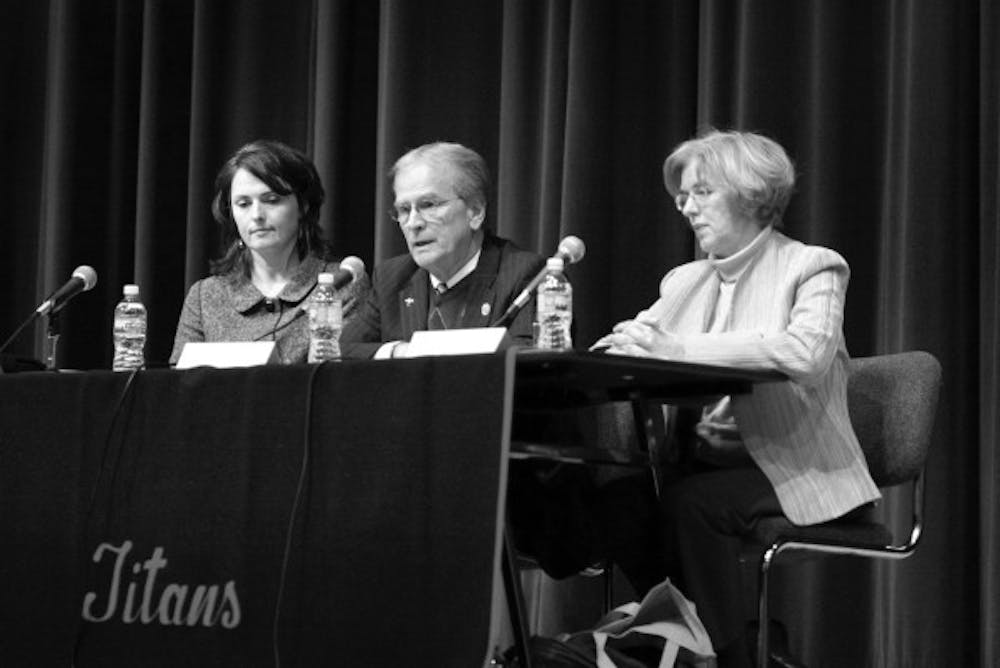The Muncie community was given the chance to ask tough questions about public education and receive immediate answers.
Muncie Community Schools' Superintendent's Parent Advisory Council hosted its forum Monday night in Northside Middle School's auditorium. The panelists included Indiana Sen. Sue Errington, whose district includes Ball State University, Rep. Dennis Tyler and Stacey Hughes, assistant superintendent for student learning with the Indiana Department of Learning.
The forum started with the panelists' opening remarks. Errington and Tyler addressed state issues with education from a legislative standpoint while Hughes spoke of problems in her department. The panelists also gave solutions to some of the problems facing public schools in the state.
Errington is introducing a bill that would allow schools to transfer funds from one area to another if needed. A school's money designated for use on transportation and bus replacement could be moved to a general fund to help save jobs.
The senator also mentioned another bill of hers that would expand the wattage available for future electricity-producing windmills. A program currently in place limits the amount of power a school would use to 10 kilowatts, distributing excess energy to other places. Schools need more than what they are currently allotted, she said. Errington's bill would allow 10 megawatts.
Errington, a proponent for green energy, said schools are working with Ivy Tech to teach people about wind turbine management. This could potentially lead to more employment, she said.
"I believe in our part of the state," Errington said. "Green development is a way to bring more of those kind of jobs."
Hughes congratulated Superintendent Eric King and the entire school board for 2009's improved high school graduation rates, yet she still acknowledged room for improvement in regards to properly retaining and rewarding teachers.
Errington answered a question about state reserves, saying they should be used to help fix problems in public schools.
"That's what they are for," Errington said. "We're in a crisis. We need to take a balanced approach."
The issue of difficulty with helping students without the support of their families was addressed. Hughes said common suggestions made to parents in regard to their children's education are sometimes unclear. For example, "read with your child" could mean reading to them or having them read while the parent makes corrections, she said.
"We expect a lot of our parents," Hughes said. "Sometimes, they don't know what's expected of them. We need to make our expectations clearer."
Tyler commends programs such as Title I, the nation's largest federally-funded program that gives money to schools with large percentages of students receiving free lunch. Even so, he acknowledges that there are problems that arise with any program and that proper education will always be necessary.
"My worst fear is that the day's going to come where not every child here is going to have a chance at having a quality education," Tyler said. "As we move forward and more programs are developed, we need to always have quality education."



